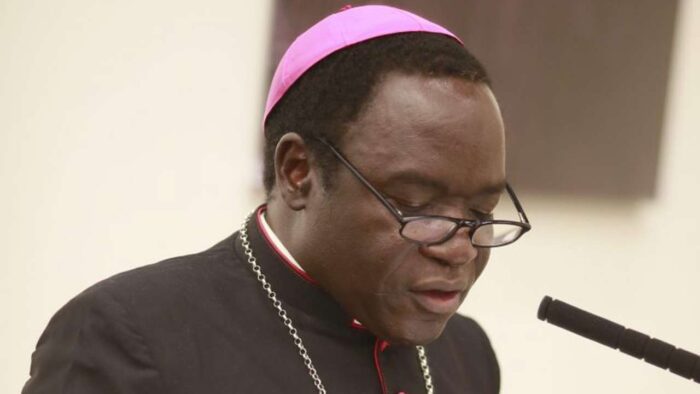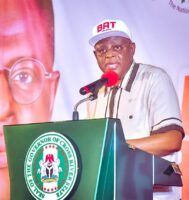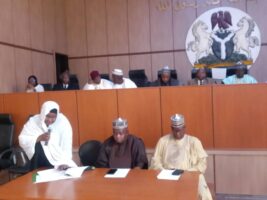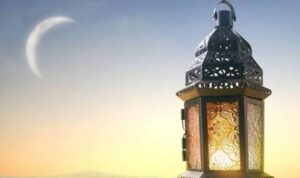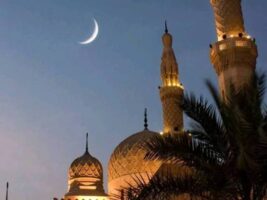Mathew Kukah, Catholic Bishop of the Sokoto Diocese, has described U.S. President Donald Trump as “a symptom of disease in Nigeria,” stressing that recent international attention on the country should serve as a wake-up call for local leaders.
Kukah made the remarks on Friday in Lagos during the 60th birthday celebration of journalist Reuben Abati, which also featured the public launch of Abati’s three new books.
The comments come after Trump, on October 31, redesignated Nigeria as a “country of particular concern,” citing allegations of a Christian genocide.
In his statement, Trump warned the Nigerian government to take immediate action to stop the killings of Christians, threatening potential air strikes or ground operations against terrorists if the violence persisted.
He also cautioned that continued attacks could lead the U.S. to suspend all aid to Nigeria.
In his keynote address, Bishop Kukah urged political and intellectual stakeholders in Nigeria to confront the nation’s challenges directly and develop lasting solutions, emphasizing that external warnings should prompt proactive measures rather than reactive criticism.
READ ALSO: Russia Closely Watching Trump’s Threats of Military Action in Nigeria
“So, if you find us being such a chaotic, quarrelsome, angry, whatever, we are in Nigeria. We lack the culture, the institutional, and the moral instillation to establish,” he said.
“All of us are confusing Trump with a sickness. Trump is a symptom of the disease that is in our country. I think it is going to happen later; it does not matter if a snake is dead or whether or not a woman killed it.
“Whether it is Trump or whoever that has given us this jab, it is time for Nigeria to wake up.”
The archbishop criticised Nigeria’s lack of tourism attractions and national monuments, noting that highlighted a broader issue of national identity and pride.
“If somebody wants to visit this country today, where will I take them to? If somebody came to Nigeria today, where would they go?” Kukah asked.
“In other places, you can go and see where the president is, but in Nigeria, you cannot see where the president is.
“We need to reload. You reload because either you did not fire your gun, or the object moved, or something has happened.”
The clergyman argued that Nigeria lacks unifying figures whose names resonate positively across diverse populations.
“But you ask yourself now, who are the prominent Nigerians, the Nigerian statesmen, that their names resonate across the length and breadth of Nigeria without contradiction?” he said

